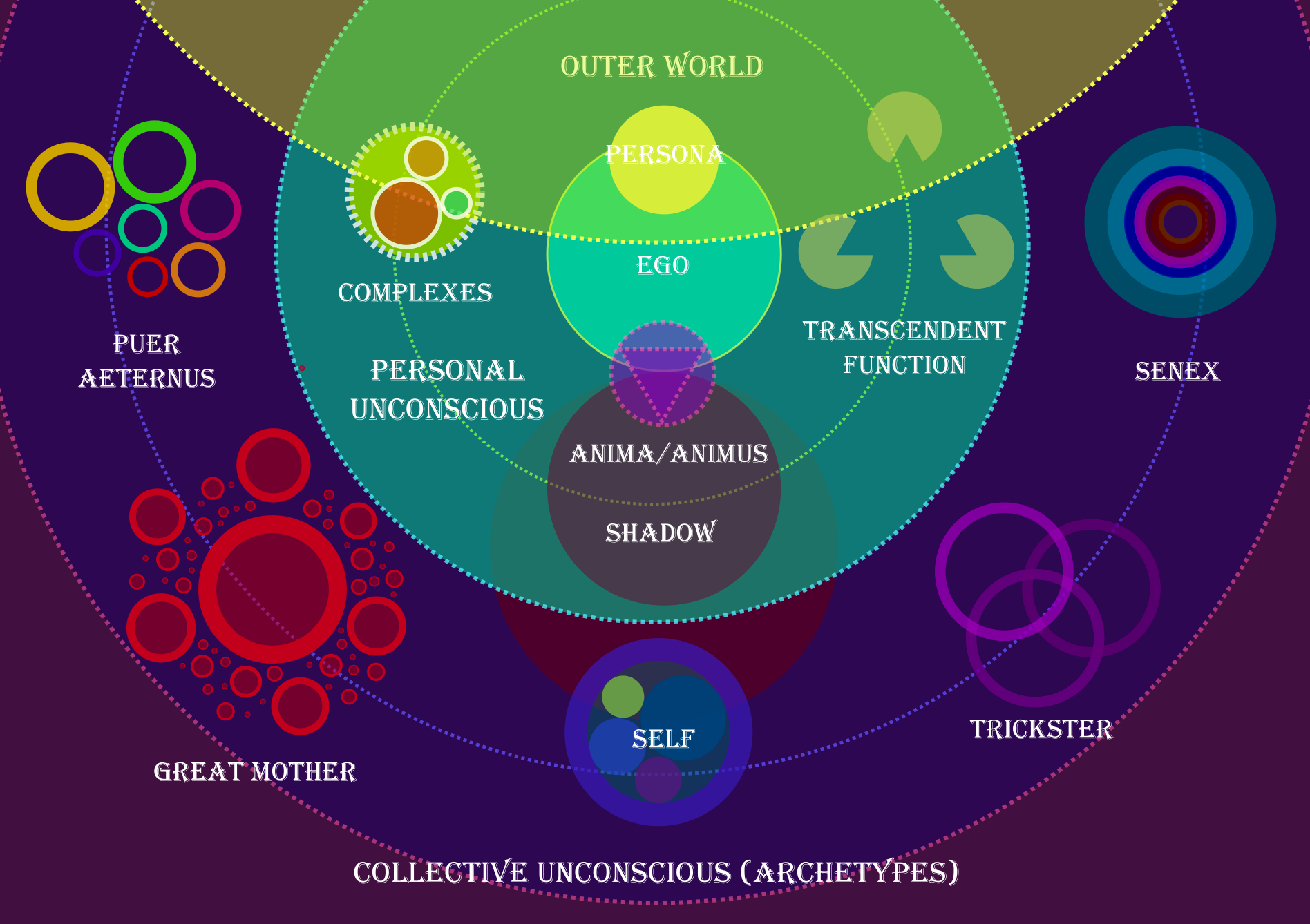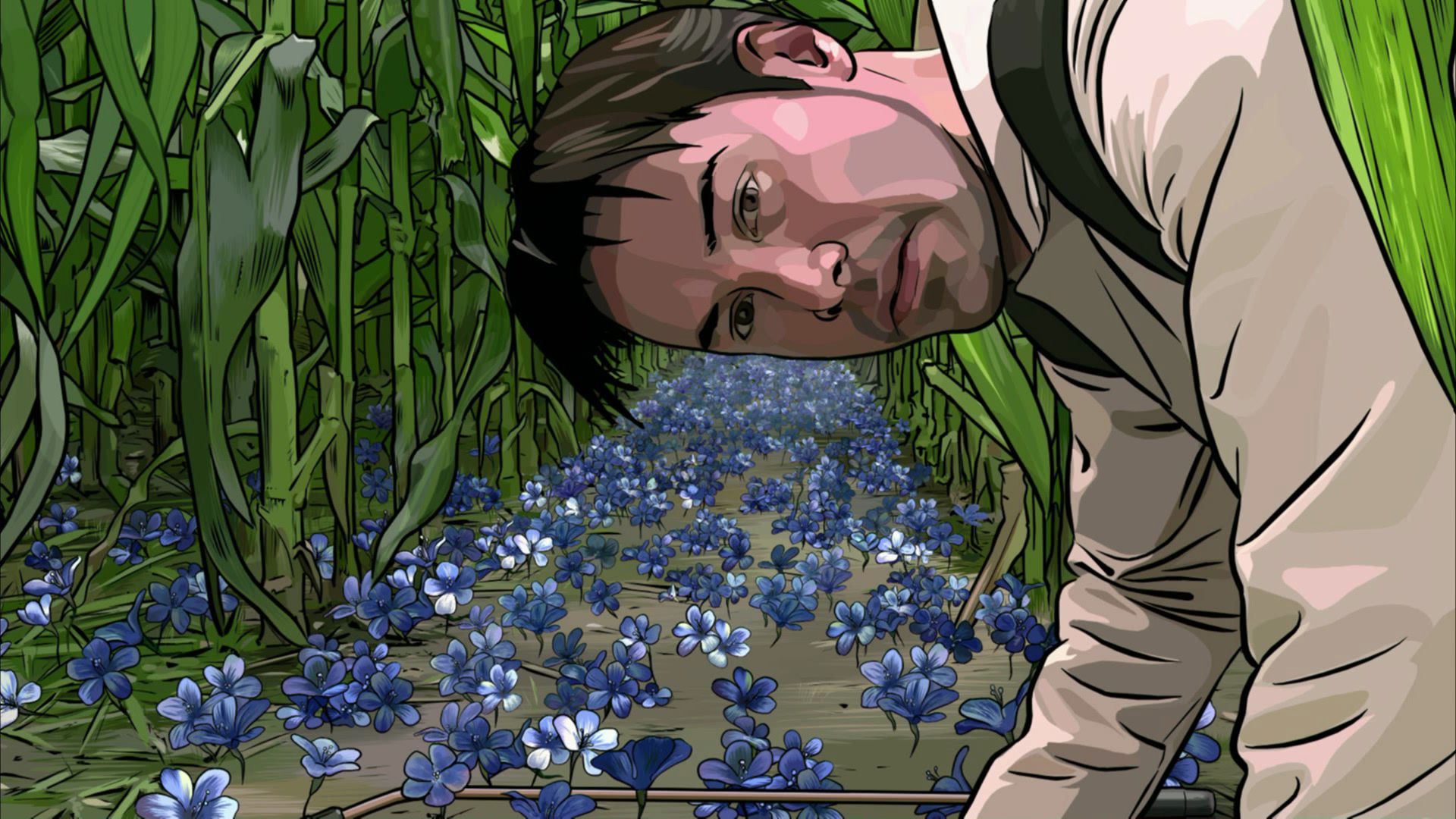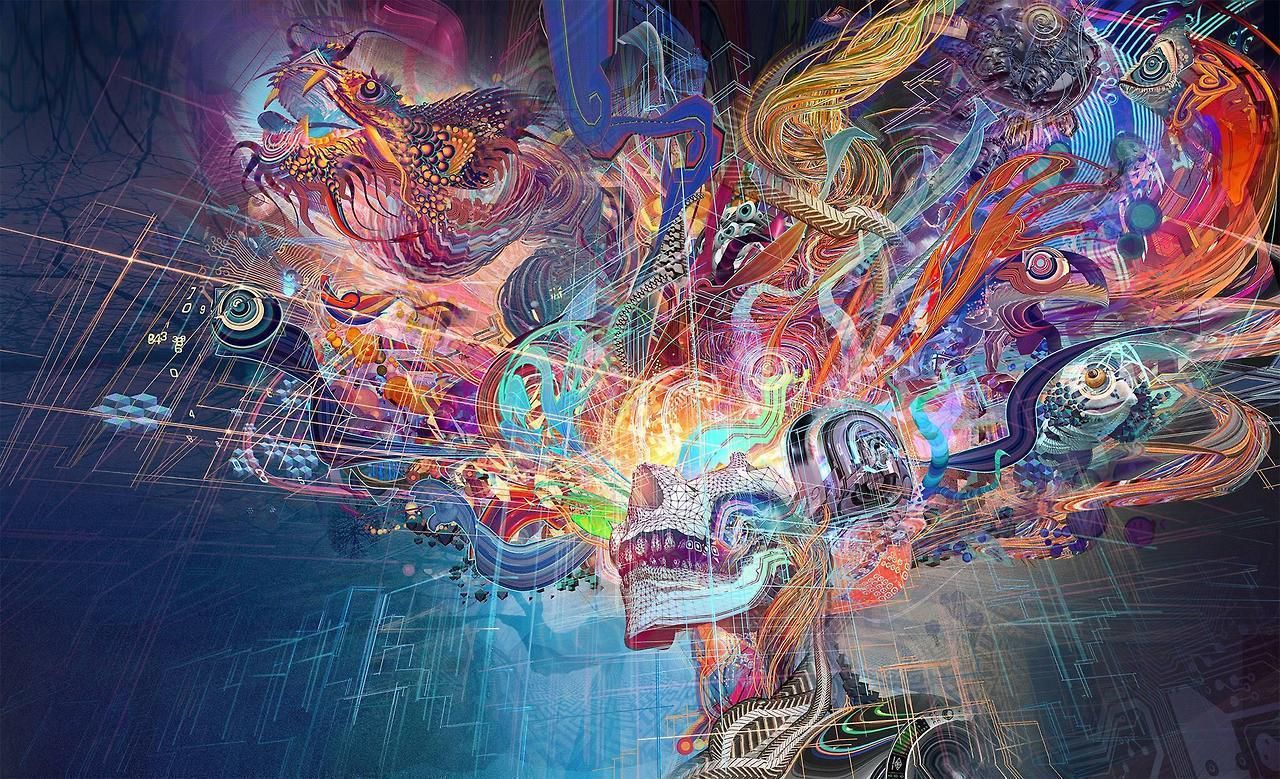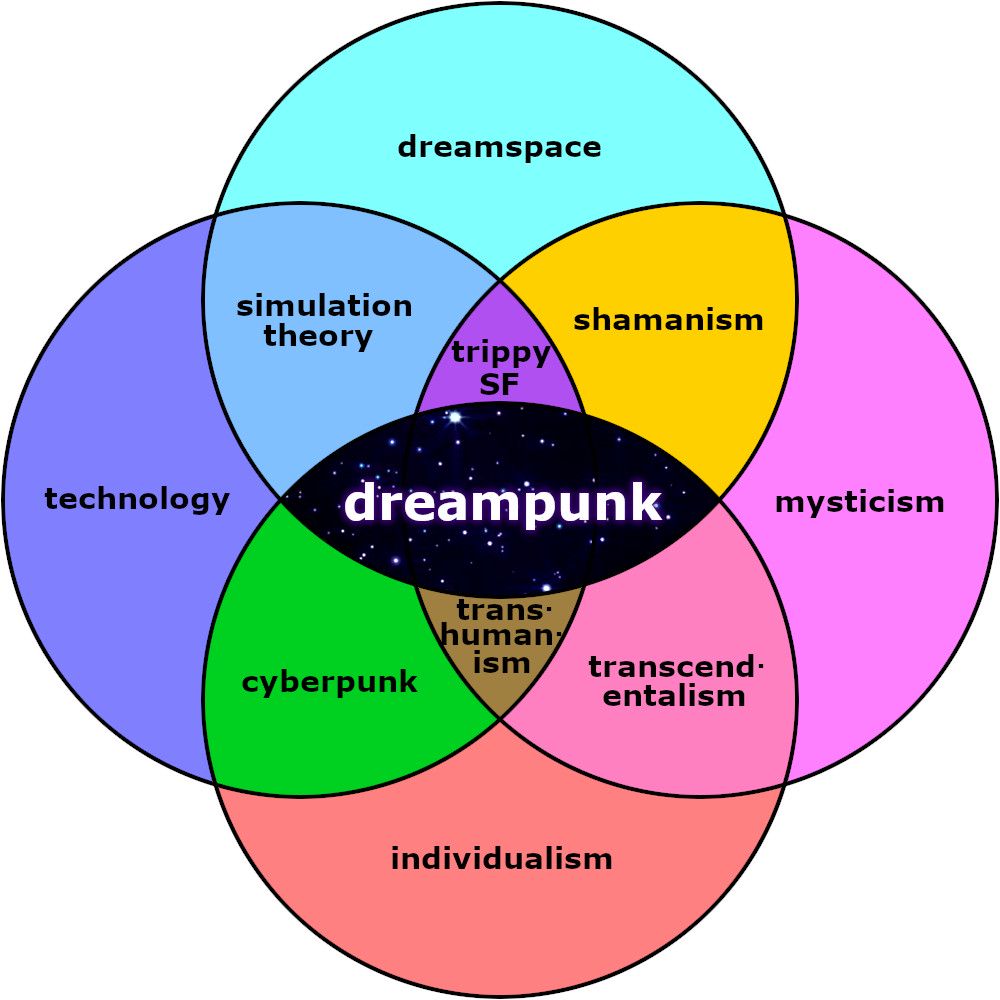What Is Dreampunk?
Note: A more complete, ad-free version of this article is available at CliffJonesJr.com.
Cyberpunk, dieselpunk, steampunk... dreampunk? Unlike its better established siblings, this fledgling genre is not rooted in technology or the reimagining of a different era. It's a trippy subgenre of speculative fiction focused on dreamlike states and their interaction with consensus reality. It often overlaps with irrealism and sometimes with cyberpunk.
Dreampunk fiction often makes use of surreal imagery, esoteric symbolism, dream logic (which may not be entirely logical), dream-related technology, false/subjective realities, shamanism, and Jungian psychology. It might be described as a more mystical, less technocentric version of cyberpunk, but dreampunk also draws from postmodern literary fiction and winds up somewhere in the neighborhood of transrealism and the new weird.

The prototypical dreampunk story has got to be Alice's Adventures in Wonderland, by Lewis Carroll. The Alice stories have a good deal in common with steampunk, except there isn't much focus on technology and the main action takes place within a dream. And while Alice may not fit your idea of a modern punk, she certainly was rebellious, eccentric, confrontational... kind of a punk for the Victorian era.
In contrast to Wonderland and the Looking-Glass World, there is no indication in the original stories that Oz is anything other than a real place—albeit magical and very well hidden. That said, the classic film adaptation did present Oz as a sort of dream, populated as it was with fantastic counterparts to Dorothy's real-world acquaintances. So L. Frank Baum's novella The Wonderful Wizard of Oz is not a good example of proto-dreampunk on its own, but MGM's film adaptation kind of turned it into one.

This is not to say that every dreampunk story must take place within the framework of a literal dream. A dream could be the waking life of a character who is mentally ill, or perhaps just extremely imaginative. Or it could be the result of a hallucinogenic drug, hypnotic mind control, or divine revelation. In one form or another, this "dreaming" should play an important role, perhaps affecting consensus reality or even in some way supplanting it. This brings me to the work of Philip K. Dick.
Although Dick is best known for the action-packed film adaptations of his science fiction work (Blade Runner, Total Recall, and Minority Report, to name a few), his stories tend to focus less on technology or alien life per se and more on the nature of consciousness, and of reality itself.

A range of existential questions are raised in the work of Philip K. Dick. A few of these are revisited in practically every story: What does it mean to be human? What is reality? If our shared consensus reality (the koinos kosmos) can't be experienced directly, then isn't the subjective experience of the individual (the idios kosmos) of primary importance? What happens when a particularly strong individual (or group or nation) begins to impose their version of "reality" onto others? How can we be sure that this scenario is not already the normal state of affairs?

In Lewis Carroll's Through the Looking-Glass, the brothers Tweedledum and Tweedledee show Alice the sleeping Red King, telling her that he's dreaming the entire world. If he were to wake up, they say, it would all disappear. Alice claims not to believe them, but the idea frightens her all the same.
At the end of the story, it becomes clear that her adventure in the Looking-Glass World was indeed a dream. A haunting question is then raised: "Which dreamed it?" Alice or the Red King? And if the latter, then isn't it possible he's still dreaming the world into existence even after Alice imagines herself to be awake?

Philip K. Dick described himself as an "acosmic panentheist." He believed there was no such thing as a true physical universe, only the endlessly complex mind of God. What that's essentially saying is that the Tweedles were right: "Life is but a dream."
If that's all a bit much to unpack, don't worry; it's meant to be. The goal of dreampunk fiction is not to feed people a particular ideology but to make them feel just uncomfortable enough with their own assumptions that they take a fresh look around with honest curiosity.

Because honestly, we're talking about dreams here. There are no rules, no limits, and nothing can be taken for granted. Have fun!

Does "dreampunk" mean something different to you? Let me know in the comments.
Bạn đang đọc truyện trên: Truyen247.Pro